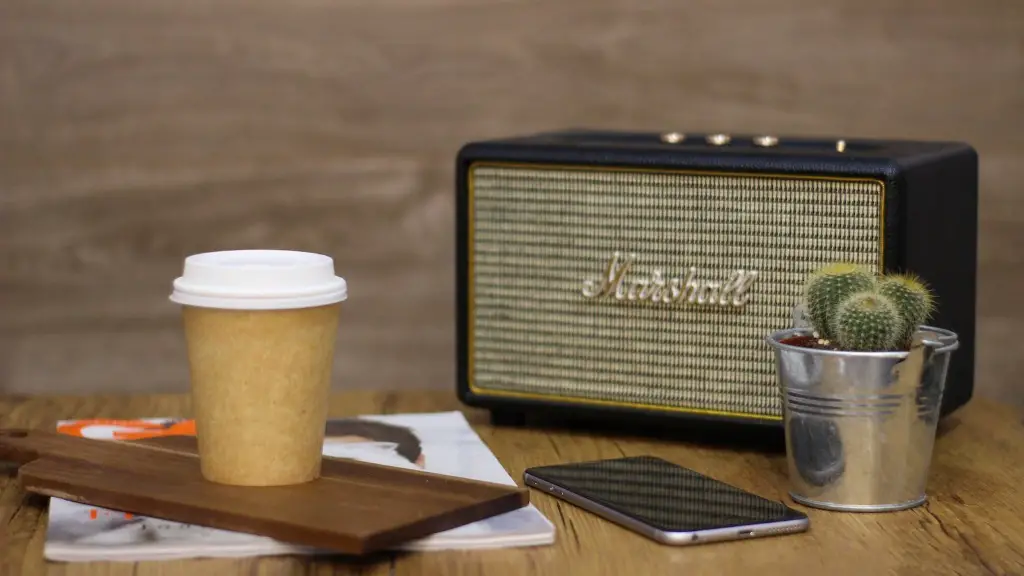IBS is an acronym for Irritable Bowel Syndrome, and it is a common disorder of the digestive system. It can cause a variety of symptoms, including constipation, diarrhea, bloating, and abdominal discomfort. People who are living with IBS may feel a deep sense of helplessness, as it can make everyday life challenging and restrictive. One of the lifestyle changes that people with IBS make is to switch to decaf coffee, a beverage that is generally thought to be less irritable to the digestive system. But is it really ok to drink decaf coffee with IBS? In this article, we’ll explore the issue and get a better understanding of the benefits and risks associated with consuming decaf coffee with IBS.
The first thing to note is that decaffeinated coffee still contains trace amounts of caffeine. This is because while the caffeine is removed, some of the other compounds in coffee remain. However, it is much lower than regular coffee, so it can be less irritating to the digestive system. Debate continues on whether decaffeinated coffee can actually help reduce IBS symptoms, but there is some evidence to suggest that it may be beneficial. In particular, decaffeinated coffee has been found to reduce diarrhea, one of the most common symptoms of IBS. Studies have also suggested that decaffeinated coffee may help reduce abdominal pain and bloating.
However, it’s important to note that drinking too much decaf coffee can still be detrimental for people with IBS. This is because coffee is a stimulant, and it can stimulate the intestines and lead to increased abdominal pain and cramping. It can also increase acid production, which can worsen symptoms like heartburn and reflux. In addition, the amount of caffeine in decaf coffee can vary from brand to brand, so it is important to check the label to make sure it is low in caffeine.
Overall, it is ok to drink decaf coffee with IBS, but it should be consumed in moderation. People should also take into account their individual circumstances, as some people may find that decaffeinated coffee causes them more discomfort than regular coffee. If you are living with IBS, it is always worth speaking to a healthcare professional or dietitian to get personalized advice on how to manage your condition.
Should Everyone With IBS Avoid Caffeine?
Some studies suggest that people with IBS should avoid caffeine, but this is an individual decision. For some people, a small amount of caffeine may be tolerated without causing symptoms. However, it is generally best to limit your intake to avoid unpleasant side effects. It is also important to note that caffeine is found in other beverages and foods, such as tea, chocolate, and colas. Therefore, it’s important to be aware of your total caffeine intake from all sources.
What Are Some Alternatives to Coffee for People With IBS?
There are many alternatives to coffee for people living with IBS. Herbal teas can be a great option, as many of them have medicinal benefits that can help reduce IBS symptoms. You can also try making your own herbal infusions with ingredients like chamomile, ginger, and peppermint. Another option is to make your own decaf coffee at home, as this allows you to control the level of caffeine and make sure it is as low as possible. Finally, you can opt for decaffeinated alternatives such as green tea or fruit juices.
Can Decaf Coffee Affect Other Medications?
It’s important to note that some medications can interact with caffeine. This is particularly true for medications that are used to treat IBS, such as antispasmodics and antidiarrheals. If you are taking these kinds of medications, it is always best to check with your doctor or pharmacist to make sure they don’t interact with any other medications you are taking. It is also recommended that you limit your caffeine intake if you are taking any medications.
How Can People With IBS Manage Coffee Consumption?
The best way to manage coffee consumption with IBS is to monitor your symptoms closely and listen to your body. If drinking coffee worsens your symptoms, it is best to limit your intake or stop drinking coffee altogether. It is also helpful to drink plenty of water and make sure you get enough rest. Finally, it is important to speak to your doctor to get personalized advice on how to manage your condition.
What Are the Benefits of Decaf Coffee?
Decaffeinated coffee can still be a good choice for people with IBS. Studies have suggested that decaffeinated coffee can help reduce symptoms like diarrhea, abdominal pain and bloating. It also provides some of the same health benefits as regular coffee, including protection against type 2 diabetes and Parkinson’s disease. Finally, it can still provide the same enjoyable sensory experience as regular coffee, but without the stimulating effects of caffeine.
What Does the Research Say?
The research is still inconclusive when it comes to the effects of decaf coffee on IBS. Some studies suggest that it can help reduce symptoms, while other studies suggest that it can worsen symptoms. Additionally, the amount of caffeine in decaf coffee can vary from brand to brand, so it is important to check the label to make sure it is low in caffeine. Ultimately, it is an individual decision and people should take into account their own circumstances.
What Are the Risks for People With IBS?
People who have IBS should be aware of the potential risks of drinking decaf coffee. Caffeine is a stimulant, and it can stimulate the intestines and lead to increased abdominal pain and cramping. It can also increase acid production, which can worsen symptoms like heartburn and reflux. Additionally, some medications used to treat IBS can interact with caffeine, so it’s important to check with your doctor or pharmacist before drinking decaf coffee.
Are There Any Natural Remedies That Can Help With IBS?
There are many natural remedies that can help with IBS. Probiotics can help boost the friendly bacteria in the gut and improve digestion. Herbal remedies such as ginger, peppermint, and chamomile can also provide relief from symptoms. Additionally, lifestyle changes such as adequate sleep, exercise, and stress management can help reduce symptoms. Finally, it is always important to speak to your doctor or dietitian to get personalized advice on how to manage your condition.



